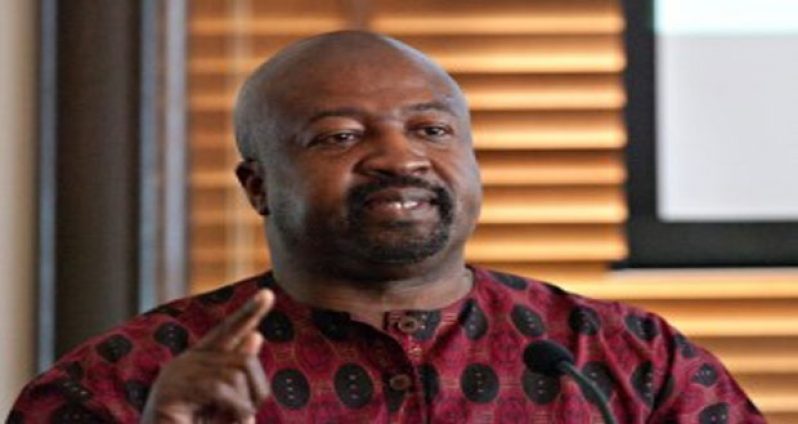–after 50 years, what are poor people celebrating?
Hinds ’Sight with Dr. David Hinds
AS HAPPENED when we became independent in 1966, the parties which control the reins of Government today are more invested in celebrating that independence. The PPP, which held government just a year ago, is very lukewarm towards the planned activities. It is not surprising, then, that the events would be attended mostly by that segment of the population which supports the parties in Government — African Guyanese.
For me, this scenario represents the greatest indictment of our independence. The fact that our politics, and by extension our society, remain as tribal as they were in 1966 must be seen as a colossal failure.
Achieving ethnic consensus in all societies is a most difficult undertaking, largely because ethnic identity is one of the most enduring forms of cultural, social and political solidarity. Most countries have struggled to find ethnic harmony, while others have opted for ethnic assimilation, which is a not-so-veiled form of ethnic domination.
We in Guyana have never, at the official level, figured out what to do about the dilemma of our strong ethnic identities on the one hand, and our declared quest of a united nation on the other. Instead, our political leaders, parties and so-called civil society have adopted empty slogans which are grounded in our misplaced national motto of “One People, One Nation, One Destiny.” We all know that we are not “one people”, and the bitter fact is that the more mature our Guyanese nation has become, the less we have become “one people.”
So, after 50 years, is there a Guyanese nation? If by “nation” we mean a civic space where our different ethnic groups generally agree to co-exist, then the answer is yes; but if by “nation” we mean a cultural space characterized by shared heritage and a shared set of values, then the answer is no.
Guyana is made up of several peoples who, because of the evolution of our history, are characterized by our cultural differences rather than by our cultural sameness. I am contending that perhaps our biggest independence failure has been our inability to acknowledge those differences, and to fashion out of that diversity a Guyanese plural cultural identity that is grounded in equal dignity and mutual respect. It is not whether Africans observe Indian Arrival or Indians and Amerindians observe Emancipation; it is whether the groups respect the dignity and equal humanity of one another. I believe that because we have been fixated with the sloganeering aspects of ethnic solidarity and not with the essence of our collective experiences, we have done more ill than good to our quest for a shared nationhood.
If I had anything to do with these Jubilee celebrations, I would have used the occasion to launch a National Grounding, whereby our historians and cultural workers invade each community with “reasonings” about our various histories and cultures. Such reasonings should target for surgical treatment the myths which the groups have developed about one another, for therein lie formidable barriers to shared nationhood. We are never going to become a viable nation until Indian and African, and Amerindian and Chinese, and Portuguese and other European Guyanese learn to respect each other as equal human beings with equal worth. That is the kind of work the Ministry of Social Cohesion should be facilitating.
As I observe this Golden Jubilee, I weep for Guyana. I weep because of the poverty that still haunts most of our people 50 years after independence. Despite noble attempts from time to time, we have not done much to arrest this scourge. It is these poor people whom we are encouraging to celebrate the “Fiftieth.” What are we encouraging them to celebrate? Our persistent crime comes from their ranks. Our high school dropout rates reside in their ranks. Their children continue to fail English and Math at CXC. Suicide and mental illness are tearing their communities apart. Drug abuse is rampant among their children and adults. They are ready targets for police brutality. The demolition crews in town and country break down their stalls in the name of beautification and cleanliness. They “voted like a boss”, and one year later they are still without jobs and the good life.
If I had anything to do with these Jubilee Celebrations, I would have used the occasion to launch a Public Works programme aimed at producing a minimum of 100 jobs each in 50 communities. I would have trained 500 literacy workers, and let them loose all over Guyana to begin the job of stamping out illiteracy. Yes, the Arches and the Durban Park Stadium and all the other niceties could have waited.
More of Dr. Hinds’ writings and commentaries can be found on his YouTube Channel Hinds’ Sight: Dr. David Hinds’ Guyana-Caribbean Politics, and on his website www.guyanacaribbeanpolitics.com. Send comments to dhinds6106@aol.com




.png)









